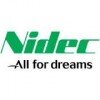fresher
100+ fresher Interview Questions and Answers

Asked in TCS

Q. Syntax for while loop and for loop?
Syntax for while loop and for loop
For loop: for(initialization; condition; increment/decrement){ //code block }
While loop: while(condition){ //code block }
Example: for(int i=0; i<5; i++){ cout<
Example: int i=0; while(i<5){ cout<

Asked in ICICI Bank

Q. What is a bank?
A bank is a financial institution that accepts deposits from the public and creates credit.
Banks provide various financial services such as loans, credit cards, and savings accounts.
They also offer investment services like mutual funds and stocks.
Banks make money by charging interest on loans and by investing the deposits they receive.
Examples of banks include JPMorgan Chase, Bank of America, and Wells Fargo.

Asked in Nidec Corporation

Q. Who is the father of history?
Herodotus is considered the father of history.
Herodotus was a Greek historian who lived in the 5th century BC.
He wrote 'The Histories', which is considered the first work of history in Western literature.
He traveled extensively and collected information from various sources to write his book.
Herodotus is known for his detailed and descriptive writing style.
His work has had a significant impact on the development of historical writing.

Asked in PTC

Q. Write a program to determine if a number is prime or not.
A program to check if a given number is prime or not.
Take input from user
Check if the number is less than 2, then it is not a prime number
Loop through numbers from 2 to n-1 and check if n is divisible by any of them
If n is divisible by any number, then it is not a prime number
If n is not divisible by any number, then it is a prime number

Asked in Xceedance

Q. What do you know about claims?
Claims are requests made by individuals or companies to an insurance company for payment of benefits or services covered under an insurance policy.
Claims are typically submitted after a covered event or service has occurred.
Insurance companies review claims to determine if they are valid and covered under the policy.
Claims can be related to various types of insurance such as health, auto, property, or liability.
Examples of claims include medical bills submitted to health insu...read more

Asked in LTIMindtree

Q. What is the difference between DROP, DELETE, and TRUNCATE statements?
Drop, delete, and truncate are SQL commands used to remove data from a table, but they differ in their functionality and implications.
DROP command is used to remove a table or database from the database schema. It deletes the table definition and all its data.
DELETE command is used to remove specific rows from a table based on a condition. It does not delete the table structure.
TRUNCATE command is used to remove all rows from a table, but it does not delete the table structur...read more
fresher Jobs




Asked in Infosys

Q. What is a pointer in C?
Pointer is a variable that stores the memory address of another variable in C programming language.
Pointers are used to manipulate data structures like arrays, linked lists, and trees.
They can be used to pass values by reference to functions.
Pointer arithmetic can be performed to access elements of an array.
Example: int *ptr; ptr = # printf("%d", *ptr);
Example: void swap(int *a, int *b) { int temp = *a; *a = *b; *b = temp; }
Example: int arr[5] = {1, 2, 3, 4, 5}; int *ptr = ar...read more

Asked in IIFL SAMASTA

Q. What is credit?
Credit is a financial term that refers to the ability of a borrower to obtain goods or services before payment, based on trust.
Credit is a form of borrowing money or obtaining goods or services with the promise to pay for them in the future.
It is based on trust and the belief that the borrower will fulfill their payment obligations.
Credit can be provided by banks, financial institutions, or individual lenders.
Examples of credit include credit cards, loans, mortgages, and line...read more
Share interview questions and help millions of jobseekers 🌟


Asked in Linde India

Q. What is the difference between petrol and diesel engines?
Petrol engines ignite fuel with a spark, while diesel engines use compression for ignition, leading to different performance characteristics.
Ignition Method: Petrol engines use spark plugs for ignition, while diesel engines rely on high compression to ignite the fuel-air mixture.
Fuel Type: Petrol engines run on gasoline, which is lighter and more volatile, whereas diesel engines use heavier diesel fuel.
Efficiency: Diesel engines are generally more fuel-efficient and provide m...read more

Asked in Freshers Universe

Q. What is HRM?
HRM is the process of managing human resources to achieve organizational goals.
HRM involves recruitment, selection, training, and development of employees.
It also includes performance management, compensation, and benefits administration.
HRM aims to create a positive work environment and ensure employee satisfaction.
Effective HRM can lead to increased productivity and profitability for the organization.
Examples of HRM practices include job analysis, job design, and succession...read more

Asked in Adenza

Q. Why is String immutable in Java?
String is immutable in Java to ensure security, thread safety, and optimization.
Immutable strings prevent accidental modification of data.
String pooling reduces memory usage by reusing common strings.
Immutable strings are thread-safe, avoiding synchronization issues.
String immutability allows for efficient caching and optimization.
Security is enhanced as immutable strings cannot be modified by malicious code.
Asked in Ebz Systec

Q. What are different types of welding
Different types of welding include MIG, TIG, stick, flux-cored, and oxy-acetylene welding.
MIG welding (Metal Inert Gas) uses a wire electrode and shielding gas to join metal pieces together.
TIG welding (Tungsten Inert Gas) uses a tungsten electrode and inert gas to create a strong weld.
Stick welding (Shielded Metal Arc Welding) uses a flux-coated electrode to create a weld.
Flux-cored welding uses a tubular wire electrode with flux inside to shield the weld.
Oxy-acetylene weldi...read more

Asked in Paradeep Phosphates

Q. What is a motor?
A motor is a device that converts electrical energy into mechanical energy to produce motion.
Motors are commonly used in various applications such as electric vehicles, industrial machinery, and household appliances.
They work based on the principle of electromagnetic induction.
There are different types of motors, including DC motors, AC motors, and stepper motors.
Examples of motors include the engine in a car, the fan in a refrigerator, and the motor in a washing machine.

Asked in ICICI Bank

Q. What is a savings account?
A savings account is a type of bank account where you can deposit and withdraw money while earning interest on the balance.
Savings accounts are typically used for short-term savings goals
They usually offer lower interest rates than other types of accounts
Some savings accounts may have minimum balance requirements or fees
Interest earned on savings accounts is usually taxable
Examples of savings accounts include high-yield savings accounts and money market accounts

Asked in Accenture

Q. What is java can you explain
Java is a high-level programming language used for developing applications and software.
Java is object-oriented and platform-independent.
It is used for developing web, mobile, and desktop applications.
Java code is compiled into bytecode and executed on a Java Virtual Machine (JVM).
Java has a vast library of pre-built classes and APIs.
Popular frameworks and tools for Java development include Spring, Hibernate, and Maven.

Asked in Girmiti Software

Q. What is OOPS can you explain
OOPS stands for Object-Oriented Programming System. It is a programming paradigm based on the concept of objects.
OOPS is based on four main concepts: encapsulation, inheritance, polymorphism, and abstraction.
Encapsulation is the process of hiding the implementation details of an object from the outside world.
Inheritance allows a class to inherit properties and methods from another class.
Polymorphism allows objects of different classes to be treated as if they were of the same...read more

Asked in mPokket

Q. What do you know about collections?
Collections refer to the process of gathering and organizing items or objects into a group.
Collections can include items such as books, art, antiques, coins, stamps, etc.
People often collect items based on personal interest, hobby, or investment purposes.
Collections can be displayed in museums, galleries, private homes, or online platforms.
Some famous collections include the British Museum in London, the Louvre in Paris, and the Smithsonian in Washington, D.C.

Asked in JSW Steel

Q. What is the difference between boiling point and melting point?
Boiling point is the temperature where a liquid turns to gas, while melting point is where a solid turns to liquid.
Boiling Point: Temperature at which a liquid's vapor pressure equals atmospheric pressure.
Melting Point: Temperature at which a solid becomes a liquid.
Example of Boiling Point: Water boils at 100°C (212°F) at sea level.
Example of Melting Point: Ice melts at 0°C (32°F).
Boiling point varies with pressure; higher pressure raises boiling point.
Melting point is genera...read more

Asked in Teleperformance

Q. What is call center, and what is Bpo
A call center is a centralized office where customer service representatives handle incoming and outgoing calls. BPO stands for Business Process Outsourcing, which involves outsourcing non-core business functions to a third-party provider.
Call centers are used by companies to handle customer inquiries, complaints, and support.
BPO companies provide a range of services such as customer support, technical support, data entry, and back-office operations.
Call centers and BPOs are ...read more

Asked in Xceedance

Q. What is a stop-loss treaty?
Stop loss treaty is a reinsurance agreement where the reinsurer agrees to cover losses above a certain threshold for the ceding company.
Stop loss treaty is a type of reinsurance agreement.
It sets a specific threshold for losses that the ceding company will cover on its own.
The reinsurer agrees to cover losses above this threshold.
It helps the ceding company limit its exposure to large losses.
Example: If a ceding company has a stop loss treaty with a threshold of $1 million, t...read more

Asked in Xceedance

Q. What is credit control?
Credit control is the process of managing the credit extended to customers and ensuring timely payment.
Credit control involves setting credit limits for customers based on their creditworthiness.
It also includes monitoring customer payments and following up on overdue invoices.
Credit control aims to minimize the risk of bad debts and improve cash flow for the company.
Examples of credit control measures include sending payment reminders, imposing late fees, and restricting fur...read more

Asked in TCS

Q. Write code to reverse a string.
Code to reverse a string
Use a loop to iterate through the string
Create a new string and add characters from original string in reverse order
Return the reversed string

Asked in Virtusa Consulting Services

Q. Explain encapsulation and abstraction
Encapsulation is the process of hiding implementation details while abstraction is the process of hiding unnecessary details.
Encapsulation is achieved through access modifiers like public, private, and protected.
Abstraction is achieved through abstract classes and interfaces.
Encapsulation protects the data from outside interference while abstraction focuses on the essential features of an object.
Example of encapsulation: A class with private variables and public methods to ac...read more

Asked in ICICI Bank

Q. What does banking mean?
Banking refers to the business of accepting deposits and lending money.
Banking involves financial transactions such as deposits, withdrawals, and loans.
Banks provide various services such as savings accounts, checking accounts, credit cards, and mortgages.
Banks also offer investment services such as mutual funds, stocks, and bonds.
Banking is regulated by government agencies to ensure safety and stability of the financial system.
Examples of banks include JPMorgan Chase, Bank o...read more

Asked in PolicyBazaar

Q. What is insurance?
Insurance is a financial protection plan that provides coverage against potential losses or damages.
Insurance involves a contract between the insurer and the insured party.
The insured pays a premium to the insurer in exchange for coverage against specified risks.
Common types of insurance include health, life, auto, home, and travel insurance.
Insurance helps individuals and businesses manage risks and protect themselves financially.
Examples of insurance companies include State...read more

Asked in HCL Group

Q. Explain the compilation process in C programming.
Compilation process in C programming involves preprocessing, compiling, assembling, and linking.
Preprocessing: Includes inclusion of header files and macro expansions.
Compiling: Translates source code into assembly code.
Assembling: Converts assembly code into machine code.
Linking: Combines object files and libraries to create an executable.
Asked in Java Systems

Q. What is the organizational structure of our company?
Our company has a hierarchical structure with clear levels of authority and responsibility.
Our company has a CEO who oversees all operations
There are several departments such as HR, Finance, Marketing, etc.
Each department has a head who reports to the CEO
There are managers and supervisors who oversee teams within each department
Employees report to their respective managers or supervisors

Asked in Thinkitive Technologies

Q. How do you find repeated letters in a string?
Count the repetition of letters in a string
Iterate through the string and count the occurrences of each letter
Store the counts in a dictionary or array
Return the counts for each letter

Asked in MagicBricks

Q. What do you bring to the table?
I bring a strong work ethic, adaptability, and a passion for learning, which will contribute positively to your team.
Strong work ethic: I consistently meet deadlines and strive for excellence in every task.
Adaptability: I quickly adjust to new environments and challenges, as demonstrated during my internship where I learned new software in a week.
Passion for learning: I actively seek out opportunities for professional development, such as online courses in my field.
Team playe...read more
Asked in Sunidhi Securities & Finance

Q. Where do you see yourself in 5 years?
In five years, I envision myself as a skilled professional, contributing significantly to my field and leading projects with confidence.
I aim to have advanced my skills through continuous learning and certifications, such as obtaining a relevant industry certification.
I see myself taking on leadership roles, perhaps managing a small team or leading projects that drive innovation.
I hope to contribute to impactful projects, like developing solutions that improve efficiency or e...read more
Interview Questions of Similar Designations
Interview Experiences of Popular Companies





Top Interview Questions for fresher Related Skills

Calculate your in-hand salary
Confused about how your in-hand salary is calculated? Enter your annual salary (CTC) and get your in-hand salary


Reviews
Interviews
Salaries
Users










